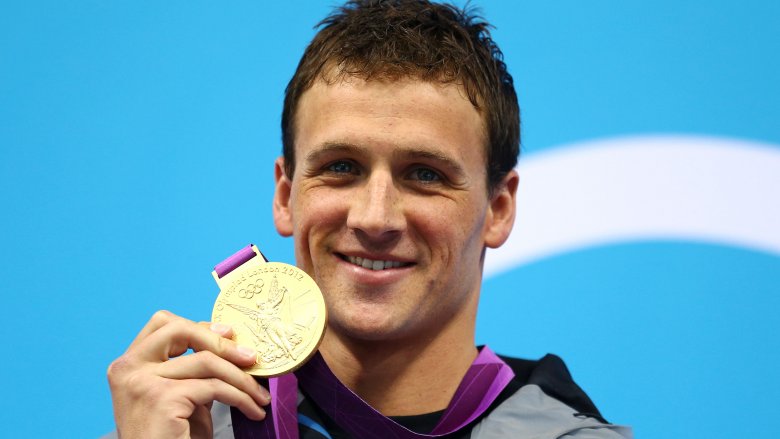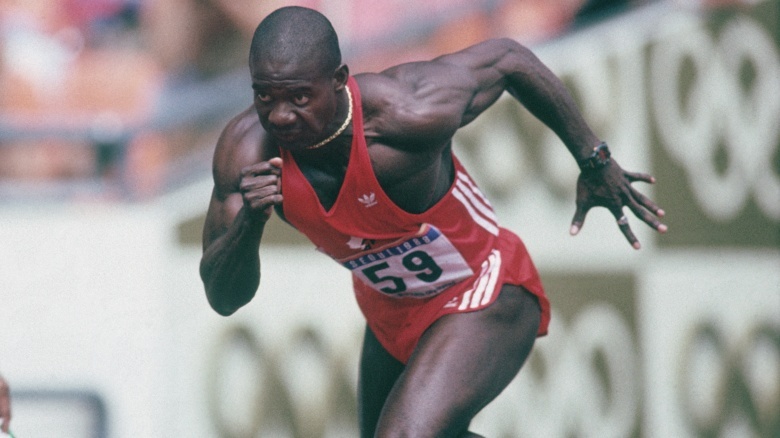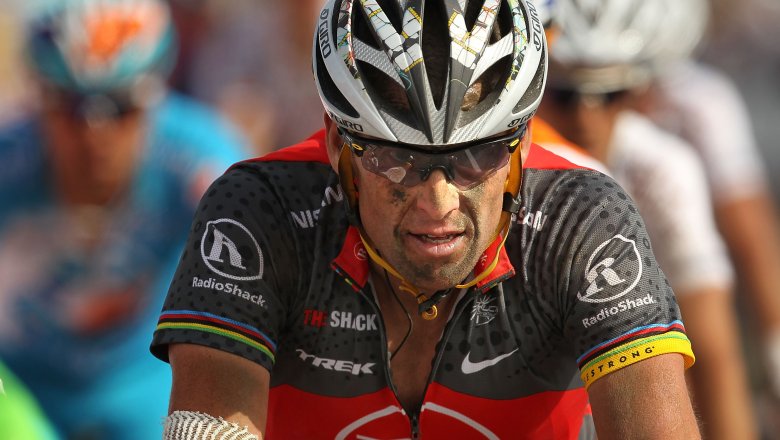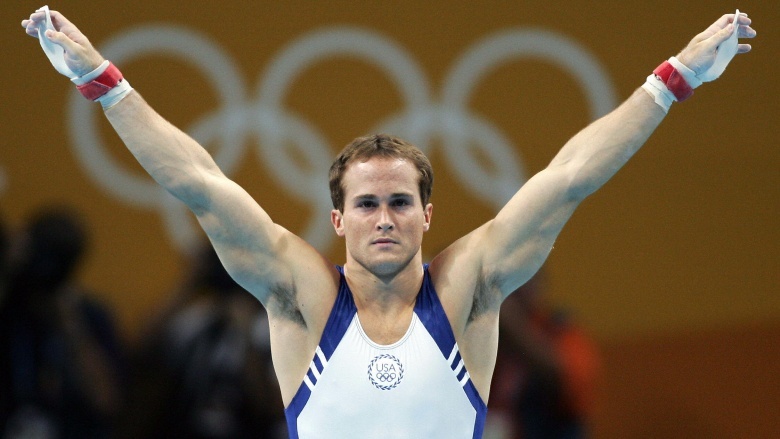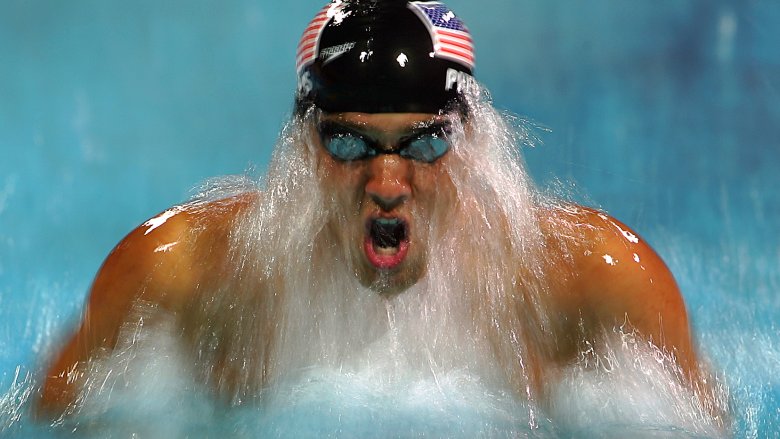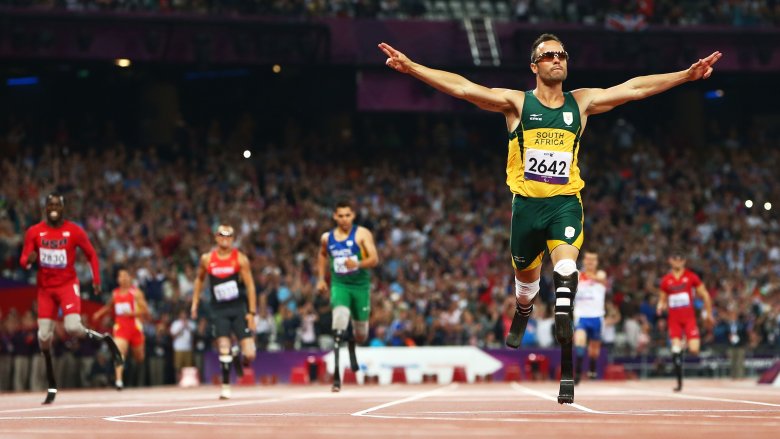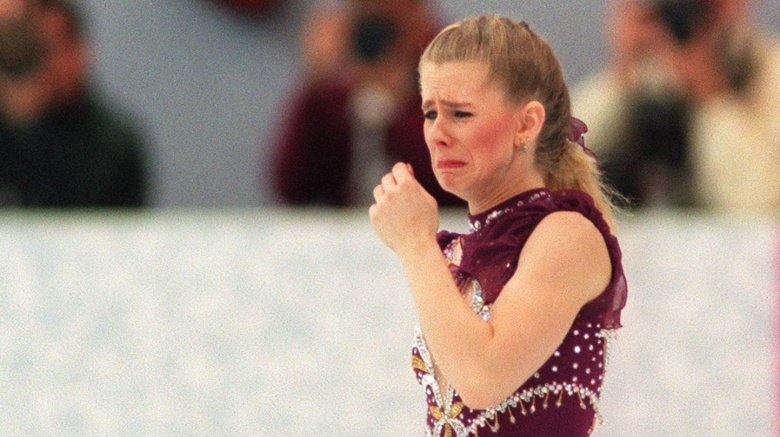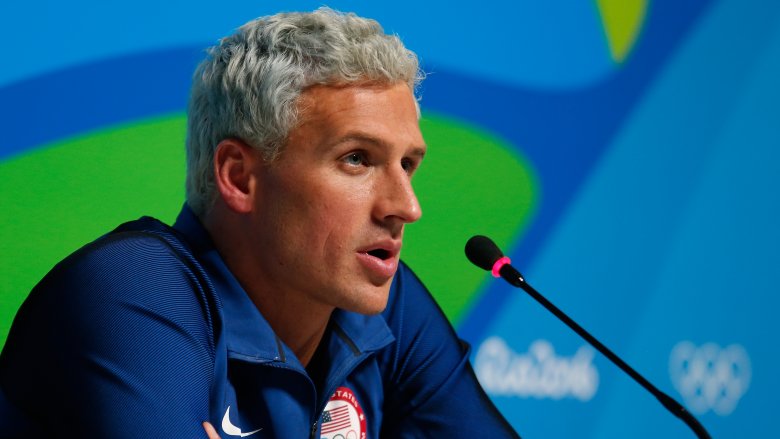Famous Olympians Who Fell From Grace
Despite being a symbol of peace, unity and athleticism, the Olympic Games and its athletes have been rife with controversy over the years. From doping scandals to murder charges, relive the conflicts that proved more likely to land an Olympian in jail than on a box of Wheaties.
Marion Jones
After years of dodging rumors, U.S. track and field star Marion Jones finally came clean in October 2007. She admitted to using performance-enhancing drugs, lying about it to federal investigators, and lying about her involvement in a check-fraud case. Jones was sentenced to six months in prison, two years probation, and 400 hours of community service. She was also stripped of the five medals she won—three gold and two bronze—at the 2000 Olympic Games in Sydney, Australia, reported ESPN.
"Her admission is long overdue and underscores the shame and dishonor that are inherent with cheating," a chairman for the International Olympic Committee said at the time of her confession, according to The New York Times.
Ben Johnson
Jones was one of many track-and-field athletes accused of doping over the years. Mere days after setting the world record in the 100-meter final at the 1988 Olympic Games in Seoul, South Korea, Canadian sprinter Ben Johnson was disqualified after testing positive for an anabolic steroid. "This is a disaster for Ben, a disaster for the Games, and a disaster for track and field," International Olympic Committee Vice President Richard Pound said at the time, according to The New York Times.
Johnson lost his gold medal and world records and was banned from competing for two years. In 1993, he failed another drug test and was banned from the sport for life, reported ESPN.
Lance Armstrong
The doping scandal that stripped cyclist Lance Armstrong of his seven Tour de France titles and banned him from cycling for life also impacted his Olympic legacy. In January 2013, the International Olympic Committee stripped Armstrong of the bronze medal he won at the 2000 Games in Sydney. "We have written to Armstrong asking him to return the medal," an International Olympic Committee spokesman told the BBC.
Armstrong admitted to taking a variety of banned performance-enhancing drugs throughout his cycling career during an interview with Oprah Winfrey, yet he did not exactly hustle to return his Olympic hardware. In September 2013, IOC Vice President Thomas Bach said the committee was still waiting to receive Armstrong's medal, reported NPR. Shortly thereafter, Armstrong confirmed he had returned his bronze in a rather embarrassing tweet.
Paul Hamm
Olympic champion and former gymnast Paul Hamm was arrested in Ohio and sentenced to probation in 2012 after allegedly assaulting a taxi driver and refusing to pay a $23 fare, according to Fox Sports. In police footage aired on a local news station, a visibly intoxicated Hamm is stammering through his words and resisting arrest. Shortly thereafter, Ohio State fired Hamm, who had been working there as an assistant gymnastics coach, according to USA Today.
Michael Phelps
Michael Phelps, the most decorated Olympian in history, received a suspended prison sentence of one year, plus one and a half years of probation, after pleading guilty to a drunken driving charge in 2014. USA Swimming also banned him from the sport for six months. The embarrassing incident marked Phelps' second DUI arrest in 10 years.
At the time of his 2014 sentencing, Phelps' lawyer claimed the swimmer had completed a 45-day stint in rehab, was attending Alcoholics Anonymous, and seeking further help from a counselor, according to The New York Times. "I now have the tools to move past this," Phelps told the court. "What I did was wrong, and I made a bad mistake. I'm looking forward to having a much brighter future than I had in the past."
Five years prior to his 2014 arrest, Phelps came under fire after a photo of him with a marijuana pipe was published in a British tabloid. Phelps acknowledged the photo was real, received a three-month suspension from USA Swimming, and lost one of his biggest sponsors, the food company Kellogg, The New York Times confirmed.
Phelps was back in the pool and and back on top at the 2016 Games in Rio de Janeiro, Brazil, adding another five gold medals and one silver to his extensive collection.
Oscar Pistorius
South African native Oscar Pistorius inspired millions around the world when he became the first amputee sprinter to compete at an Olympic games in 2012. Less than a year later, his incredible story took a turn for the deadly when he was accused of shooting and killing his girlfriend, Reeva Steenkamp.
Pistorius' long and complicated trial was covered heavily by the media. He was convicted of murder, lost his appeal, and was initially sentenced to six years. The judge calling him "a fallen hero," but the prosecution appealed that punishment, believing it to be far too lenient. In November 2017, the South African High Court increased PIstorius' sentence to 13 years and five months, reported CNN.
Tonya Harding
What list of disgraced Olympic athletes would be complete without the infamous Tonya Harding? The figure skater's name was implicated in the nasty attack on competitor Nancy Kerrigan after a practice session for the 1994 U.S. Figure Skating Championships. Word quickly got out that Harding's ex-husband, Jeff Gillooly, and three other men had organized the ambush, leading many to suspect that Harding was somehow involved as well.
During the attack, one of the men struck Kerrigan's right knee with a collapsible police baton. They reportedly chose the right knee because was Kerrigan's "landing leg," so severely injuring it would take her out of competition, reported The New York Times.
To this day, Harding has maintained her innocence, as documented in the ESPN documentary The Price of Gold. She did plead guilty to hindering the investigation in a plea deal with prosecutors. Harding received three years' supervised probation, 500 hours of community service, and was required to pay a $100,000 state fine, donate $50,000 to the Special Olympics, and undergo a psychiatric examination. She was also stripped of her 1994 U.S. National Championship medal and banned from U.S. Figure Skating Association-related events for life.
Ryan Lochte
U.S. Olympic swimmer Ryan Lochte shocked the world when he revealed that he had been robbed at gunpoint by men pretending to be police officers during the Games in Rio de Janeiro, Brazil, but jaws really hit the floor when an investigation revealed Lochte's claims didn't hold water.
According to The New York Times, Brazilian police officials said "there was no robbery in the way it was reported" by Lochte and some teammates, noting that the fabricated story stained the city's reputation with "a fantastical vision." The U.S. Olympic Committee issued an apology to the host nation, and Lochte eventually sorta kinda apologized for his role in the scandal. In a statement on Instagram posted Aug. 19, 2016, the swimmer said he was sorry "for not being more careful and candid" in his description of events and for "taking the focus away from the many athletes fulfilling their dreams of participating in the Olympics."
Lochte was suspended from the sport for ten months, and although his Olympic legacy has been forever tarnished, he did manage to at least buoy his notoriety into a stint on Dancing with the Stars, so there's that.

